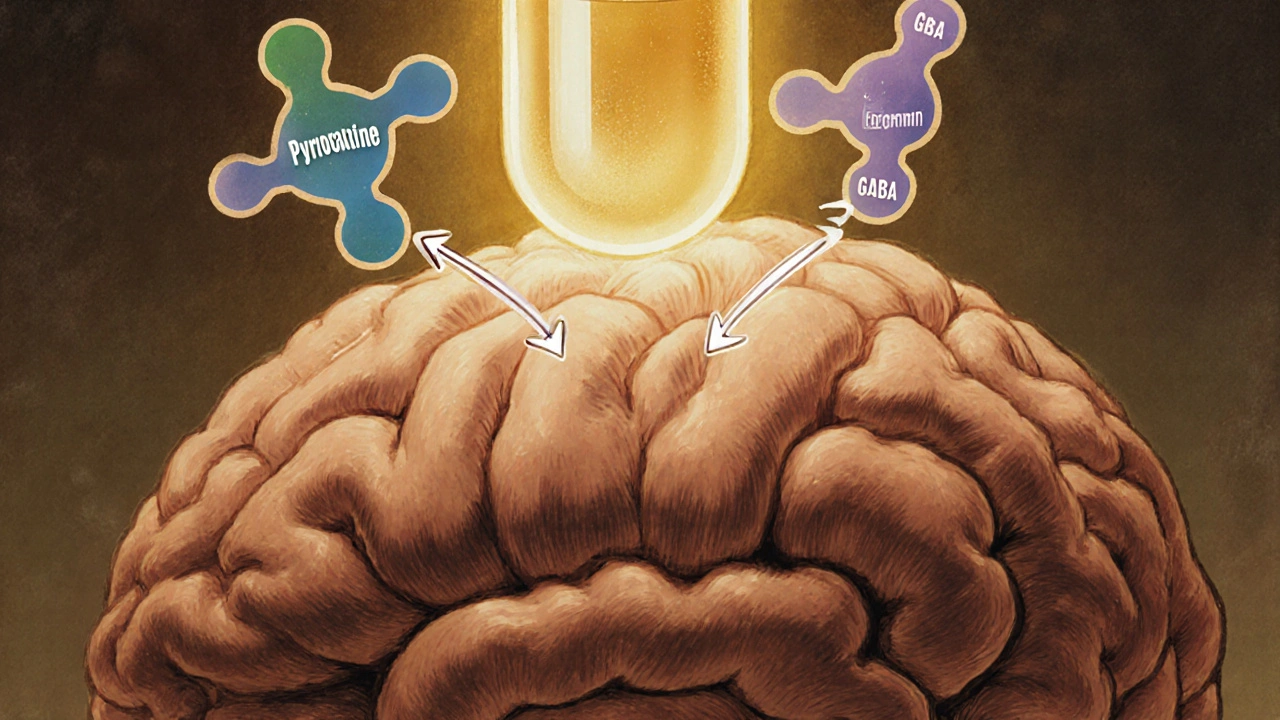Pyridoxine: What It Does, Who Needs It, and How It Affects Your Health
When you hear pyridoxine, the active form of vitamin B6, essential for over 150 enzyme reactions in the body. Also known as vitamin B6, it doesn’t just help you digest food—it’s running the show in your brain, nerves, and blood. Think of it as the quiet coordinator behind your mood, energy, and even how your body handles stress. Without enough pyridoxine, things start to slow down—fatigue sets in, you feel off, and your body struggles to make serotonin or dopamine properly.
It’s not just about supplements. Pyridoxine works with homocysteine, a harmful amino acid linked to heart disease when levels rise. Your body uses pyridoxine to turn homocysteine into something harmless. If you’re low on B6, homocysteine builds up. That’s why doctors check both when looking at heart or brain health. And it’s not just older adults—people on certain medications, like birth control or epilepsy drugs, often drain their pyridoxine stores without realizing it.
Then there’s nerve health, where pyridoxine plays a critical role in protecting and repairing nerve cells. If you’ve ever felt tingling in your hands or feet, or had unexplained muscle weakness, low B6 could be part of the puzzle. It’s not a cure-all, but fixing a deficiency can make a real difference. Pregnant women use it for morning sickness. Older adults rely on it to keep their memory sharp. Athletes use it to recover faster. Even people with depression see improvement when their B6 levels are balanced.
You won’t find pyridoxine in a single food, but you’ll get it from chicken, fish, potatoes, bananas, chickpeas, and fortified cereals. Still, most people don’t eat enough of these daily. Blood tests can tell you if you’re low—but symptoms like irritability, poor sleep, or frequent infections often show up first. The good news? Fixing it is simple. A daily B6 supplement, under a doctor’s guidance, can bring you back to normal in weeks.
What you’ll find below are real, practical guides on how pyridoxine fits into everyday health—from managing side effects of other meds to boosting mental clarity without drugs. No fluff. No guesswork. Just clear, tested info from people who’ve been there.

How Pyridoxine Helps Manage Stress and Anxiety
Explore how pyridoxine (vitamin B6) supports neurotransmitters, lowers cortisol, and can ease stress and anxiety, with dosage tips, food sources, and safety advice.
Read more